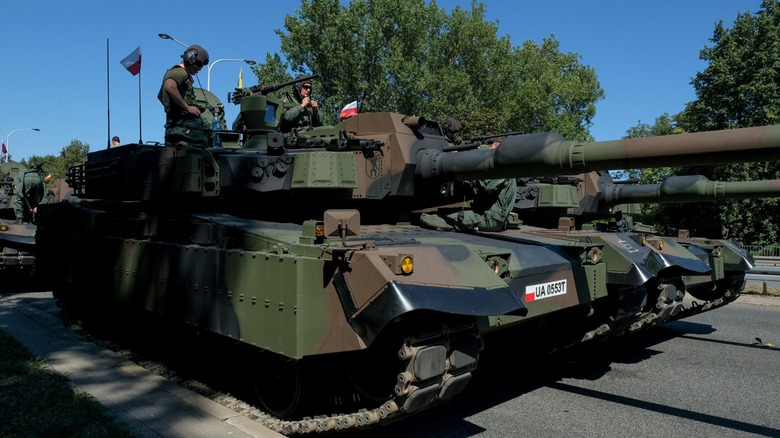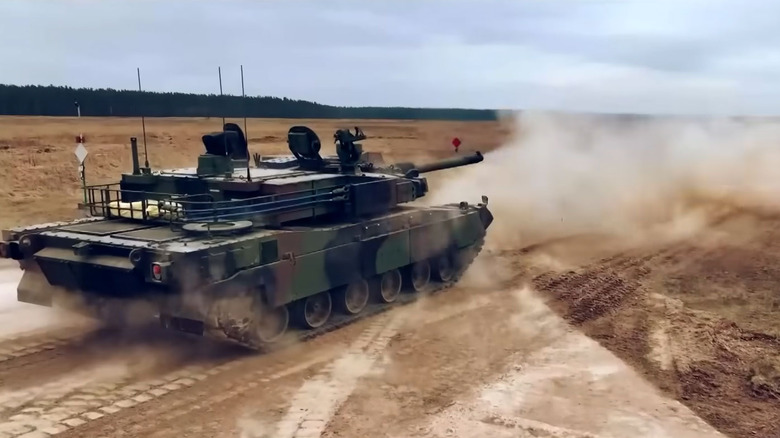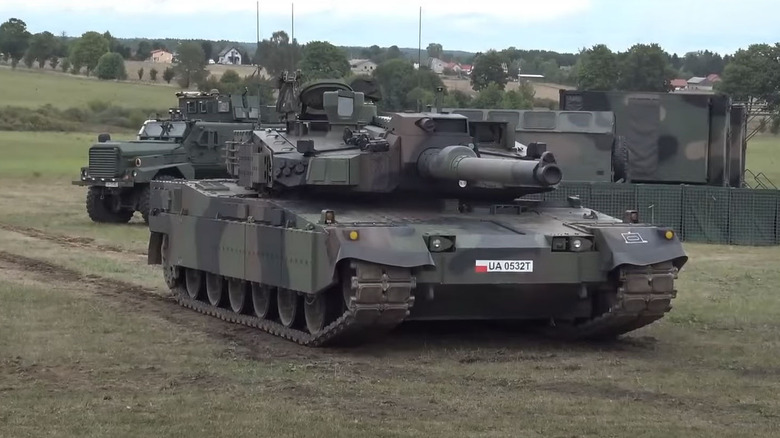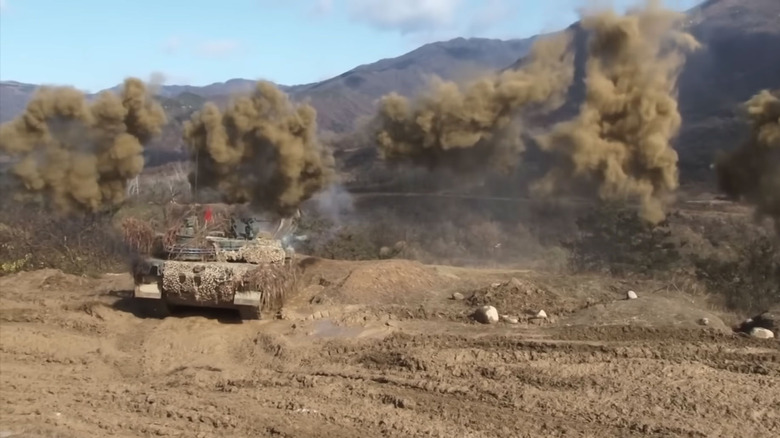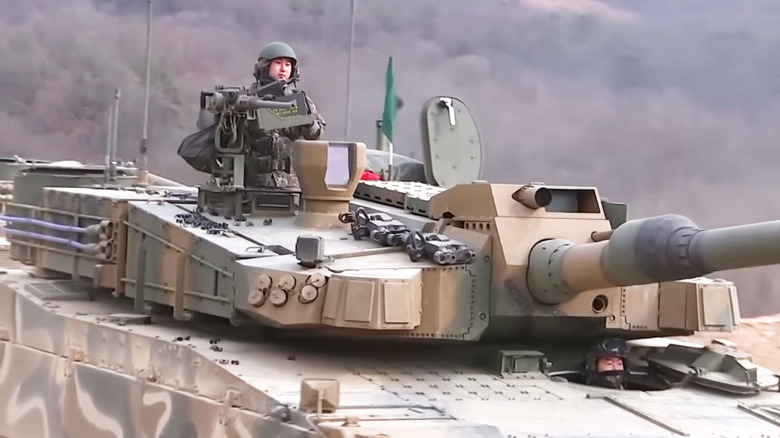The K2 Black Panther: How South Korea Engineered A World-Class War Machine
In 1953, after roughly three years of war between North and South Korea, an armistice was finally signed to end hostilities between the two now-separate nations. Establishing a Demilitarized Zone, widely known as the DMZ, this divide on the peninsula of Korea acted as a symbolic and physical border between the countries and their governments. The Korean Armistice Agreement also catalyzed the Republic of Korea (ROK) to begin manufacturing weapons and military vehicles to compete with a vast North Korean military stockpile.
In an effort to win this arms race, the Republic of Korea Armed Forces began developing a new, heavily armored vehicle. With tensions remaining high to this day, this somewhat surprisingly led the relatively small country to eventually develop some of the most sophisticated military technology in the world. This would all culminate when Korea started rolling out the most expensive and arguably the most effective modern military tank in the world, the K2 Black Panther manufactured by Hyundai Rotem.
According to the latest estimates from the Council of Foreign Relations, North Korea, or the Democratic People's Republic of Korea (DPRK), possesses over 4,000 tanks and 2,500 armored vehicles, making the K2 Black Panther a critical lynchpin in South Korea's defense. However, the K2 is also making waves globally, as other countries have also placed purchase orders for the highly sophisticated armored vehicle.
The United States Abrams inspired the K2 Black Panther's predecessor
By the 1970s, North Korea had already deployed the T-62, a Soviet tank with a powerful 115-millimeter main cannon. This armored vehicle outclassed South Korea's M-48, which only had a 90-millimeter gun. As a result of this shortcoming, the country began developing the K1 88-Tank in conjunction with General Dynamics Land Systems, which possessed a 105-millimeter gun, the same as the original Abrams. Though formidable in its own right, the tank overall was smaller, leading American troops to nickname it the "baby Abrams."
While the K1 did outclass North Korean tanks in every way, this first iteration wouldn't be perfect, as most of the parts had to be sourced from outside Korea. This reliance on foreign parts led to the desire to create a domestic tank that sourced parts from other Korean factories. This journey would start in 1995, as engineers set out to reverse-engineer the technology from the best tanks worldwide.
The work started with the German Rheinmetall 120-millimeter L55 gun with its innovative firing mechanics and the fire control system from France's Leclerc. Korean engineers would also reverse-engineer Germany's MTU-890 V12 diesel engine.
Research and development enabled South Korea to integrate cutting-edge global military technologies into the K2 Black Panther, and the time spent reverse-engineering erased the country's reliance on imported parts. Research and development for the K2 ended in 2006, with the first tanks being deployed by the ROK in 2014.
The K2 Black Panther is one of the most advanced tanks in the world
Though other modern tanks, like the German Leopard 2A7+ and American M1A2 SEP Abrams, are also highly advanced with sophisticated onboard technology, the Hyundai Rotem K2 Black Panther is among the most effective and advanced tanks in the world. The K2 has a 120-millimeter L/55 smoothbore gun with an autoloader that enables it to fire 10 rounds per minute.
The tank also comes equipped with secondary fire in the form of 12.7 and 7.62-millimeter machine guns and KSTAM-II smart ammunition that can auto-target vulnerabilities in enemy armor. However, it's not just the tank's armaments that make it so impressive. Notably, to accommodate the swampy marshes of South Korea, the K2 Black Panther is capable of fording up to 13 feet in water. To do this, the K2 comes with a snorkel kit, and its turret creates a water-tight seal.
The K2 Black Panther has other advanced features
The K2 Black Panther is among the fastest tanks in the world, equipped with a Tognum MT 833 diesel engine that can reach maximum speeds of 43 miles per hour on paved streets and a little over 30 miles per hour offroad, comparable to America's Abrams tanks. The K2 also has a hydropneumatic suspension that enables it to raise or lower to accommodate different types of terrain.
The K2 Black Panther is protected by Composite Armor and Explosive Reactive Armor (ERA) and a sophisticated nuclear, biological, and chemical defense system. It also comes equipped with an anti-tank rocket, missile defense, and an identification friend or foe (IFF) system inside the hull. With auto tracking with thermal imaging, GPS, and complete panoramic sight, the features of the advanced tank help keep the three-person crew secure while providing its operators with the latest combat technology.
South Korean manufacturing power makes the K2 a desirable option
Even though the K2 Black Panther is the most expensive tank in the world — costing a staggering $8.5 million per tank — it hasn't stopped other countries from placing large purchase orders for the advanced military vehicle.
At the end of 2022, 180 Hyundai K2 Black Panthers were delivered to Poland, with 820 tanks to be manufactured in Poland starting in 2025 or 2026. This has raised some concerns in European military circles, as the German Leopard 2 has typically been the choice for the country, though it has also purchased American M1 Abrams tanks in the past.
The main advantage that the K2 Black Panther has over other tanks is the rapid pace at which South Korea can manufacture them. Most recently, according to reporting from Reuters, Germany, which once possessed nearly 4,000 Leopard 2s at the height of the Cold War, now only has 350. Worse yet, it would take until 2024 at the earliest to provide retrofit Leopard 2s to aid in the Russo-Ukrainian War.
On the other hand, South Korea has already approved the mass production of $1.46 billion worth of K2 Black Panthers over the next five years while maintaining 260 armored vehicles. Other European countries like Slovakia and Norway are considering purchasing K2s, showing global interest in the formidable tank.
